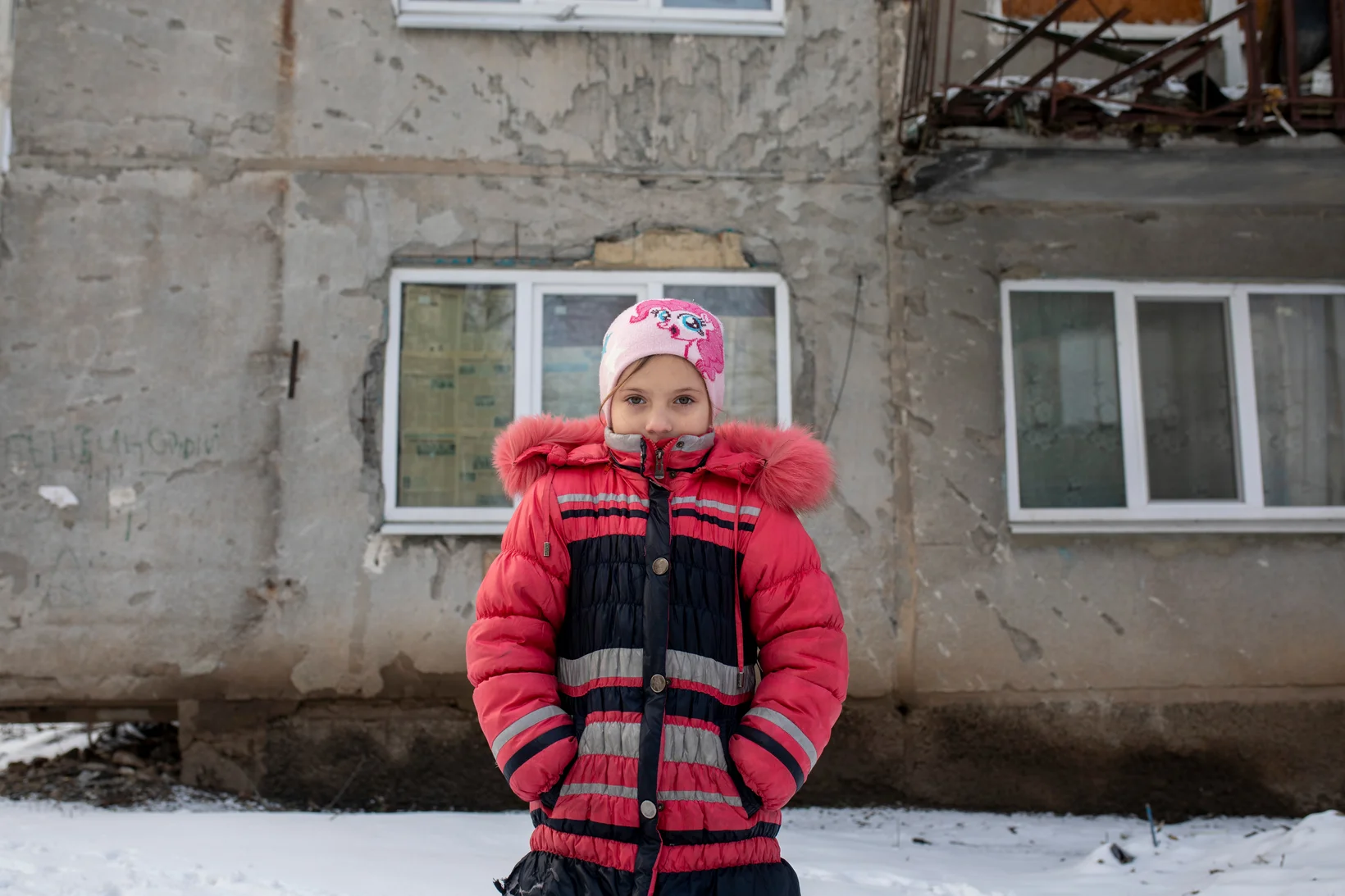War in Ukraine
By the end of 2022, 17.7 million people, including 3.4 million children, were in urgent need of humanitarian assistance. UNICEF launched its appeal for help immediately on February 24, 2022. The solidarity shown in Switzerland and Liechtenstein was unique and has continued through to the present day. Thank you.

Ukraine. The war has led to the largest refugee crisis since the Second World War. By the end of December 2022, 7.9 million refugees from Ukraine had been registered across Europe. A further 5.9 million people had been displaced within Ukraine. As a result of the war, children and young people are at higher risk of getting sick and not receiving medical assistance. The war’s impact has greatly increased the propensity for family violence and the number of cases of families being violently separated. The risk of children being injured by weapons of war, such as mines and unexploded ordnance, has also increased.
Attacks on schools
Missile, drone and bomb attacks have destroyed over 400 schools. As a result, 5.3 million schoolchildren have inadequate access to education. Children in Ukraine are in danger of losing crucial years, not only of schooling but also of social development.
Minus 20 degrees Celsius
Winter is harsh in Ukraine. The power cuts and reduced water supply mean that children and their families are defenseless against the extreme cold and fall ill due to contaminated water. 16 million people have only limited access to safe water and sanitation. This is all the more concerning because socioeconomic crises are on the increase due to the duration of the war. By the end of 2022, over 400,000 girls and boys were affected by severe poverty.
Working 24 hours a day
UNICEF is working around the clock in Ukraine and doing everything it possibly can. CHF 129 million worth of emergency supplies had been delivered to the country by the end of December 2022. This great solidarity has enabled UNICEF to provide effective help. UNICEF Switzerland and Liechtenstein’s financial support for the Ukraine emergency response has helped provide basic medical care for 4,926,077 children and women. More than 4.6 million people have been given access to safe drinking water, while hygiene items have been distributed to a total of 1,559,304 people. Psychosocial support has reached 2,978,598 children and young people.
Protection for child refugees
In just the first two weeks after the war broke out, more than two million people fled Ukraine. The huge volume of donations made it possible to ramp up and expand measures in the areas of health, child protection and education, including in neighboring countries. Financial support from UNICEF Switzerland and Liechtenstein has also enabled 40 Blue Dot Hubs (refugee contact points) and mobile teams to provide safe shelter and assistance to more than 1.2 million refugees.
The Blue Dot Hubs provide shelter and warmth to children and their families. The Blue Dot digital platform was also launched to improve cross-border information sharing. The Blue Dot Hubs continue to help identify children who are fleeing on their own, registering them and referring them to appropriate protection services. 32,149 unaccompanied children or children separated from their parents have been identified to date. In the area of education, UNICEF has provided access to both formal and informal teaching and learning formats for 588,788 girls and boys of kindergarten and school age. In addition, 433,701 children and women have been granted access to primary healthcare services. Working with partners, UNICEF has provided access to safe drinking water for 100,350 people in the countries neighboring Ukraine and reached 47,494 households with emergency cash assistance.
25 years in Ukraine
UNICEF has been working for children in Ukraine for a quarter of a century. Together with our partners, we have expanded humanitarian aid for children and their families since February 24, 2022. UNICEF has established numerous safe points of contact for refugee children and families at border crossings with Ukraine’s neighbors, including Romania and the Republic of Moldova. UNICEF is also sending relief supplies to the region to ensure that those affected are provided with basic necessities.
